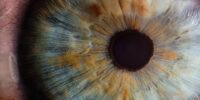Why Smoking Cessation Benefits Your Eye Health

Smoking cessation has been shown to have numerous benefits for overall health, including the reduction of various chronic diseases.
This article aims to explore the specific relationship between smoking cessation and eye health. By examining the link between smoking and eye diseases such as age-related macular degeneration, cataract development, dry eye syndrome, glaucoma risk, diabetic retinopathy, and the effects of secondhand smoke, this article highlights the importance of quitting smoking for maintaining good eye health.
The objective and impersonal analysis presented in this article will provide valuable insights into the potential benefits of smoking cessation for eye health.
Key Takeaways
- Smoking cessation reduces the risk and progression of corneal diseases and optic nerve damage.
- Quitting smoking slows down the progression of age-related macular degeneration (AMD) and improves visual outcomes.
- Smoking cessation helps prevent further damage to the macula and improves visual acuity in individuals with macular degeneration.
- Quitting smoking significantly reduces the incidence of cataracts and complications in individuals who wear contact lenses or have undergone eye surgeries.
The Link Between Smoking and Eye Diseases
The relationship between smoking and eye diseases has been extensively studied and documented in scientific literature. Smoking has been found to have detrimental effects on various aspects of eye health, including corneal health and optic nerve damage.
Research has shown that smoking is associated with an increased risk of developing corneal diseases such as dry eye syndrome and corneal ulceration. The chemicals present in cigarette smoke can impair the functioning of the cornea, leading to a decrease in tear production and an increase in corneal inflammation.
Additionally, smoking has been linked to optic nerve damage, which can result in conditions like glaucoma and optic neuritis.
It is important to note that smoking cessation can significantly reduce the risk and progression of these eye diseases, emphasizing the importance of quitting smoking for maintaining optimal eye health.
Smoking and Age-Related Macular Degeneration
This discussion focuses on the relationship between smoking and age-related macular degeneration (AMD), a leading cause of vision loss among older adults.
Research has consistently shown that smoking worsens the progression of AMD, accelerating the damage to the macula, the central area of the retina responsible for sharp, central vision.
However, quitting smoking has been found to have a positive impact on vision, as it can slow down the progression of AMD and potentially improve visual outcomes.
Smoking Worsens Macular Degeneration
Smoking has been found to exacerbate the progression of macular degeneration. Smoking cessation is crucial in preventing further retinal damage in individuals affected by this condition.
Macular degeneration is a degenerative eye disease that affects the macula, the central part of the retina responsible for central vision. Research has shown that smoking increases the risk of developing age-related macular degeneration and accelerates its progression.
This detrimental effect is believed to be due to the oxidative stress caused by smoking on the delicate structures of the eyes, including the retina. Oxidative stress refers to an imbalance between the production of harmful reactive oxygen species and the body’s ability to counteract their damaging effects.
Quitting Smoking Improves Vision
Quitting the use of tobacco has been shown to have a positive impact on visual acuity and may contribute to the improvement of overall vision. Smoking cessation has been associated with improved visual acuity, which refers to the ability to see fine details clearly. Studies have found that long-term smokers who quit smoking experience significant improvements in visual acuity compared to those who continue to smoke.
Additionally, smoking cessation has also been linked to improved color perception. Color perception is the ability to distinguish and perceive different colors accurately. Smokers have been found to have reduced color perception compared to non-smokers, and quitting smoking can help restore this aspect of vision.
These findings highlight the importance of smoking cessation in promoting better eye health and visual function.
How Smoking Impacts Cataract Development
This discussion focuses on the relationship between smoking and the development of cataracts, as well as the preventive effects of smoking cessation on cataract formation.
Numerous studies have established a strong association between smoking and an increased risk of cataracts.
Furthermore, quitting smoking has been shown to significantly reduce the incidence of cataracts, providing further evidence for the importance of smoking cessation in maintaining eye health.
Smoking and Cataracts
The association between tobacco use and the development of cataracts has been extensively documented in numerous scientific studies. Smoking has been found to be a risk factor for the development and progression of cataracts.
Additionally, smoking can also have detrimental effects on individuals who wear contact lenses or have undergone LASIK surgery. Contact lens wearers who smoke are at an increased risk of developing dry eye syndrome, which can lead to discomfort and vision problems.
Furthermore, smoking can interfere with the healing process after LASIK surgery, potentially leading to complications and suboptimal visual outcomes.
It is therefore recommended that individuals who smoke consider quitting to reduce their risk of cataracts and to optimize their eye health, especially if they wear contact lenses or have undergone LASIK surgery.
Quitting Smoking Prevents Cataracts
Research has shown a significant reduction in the risk of developing cataracts among individuals who have successfully stopped tobacco use. Cataracts are a major cause of visual impairment and blindness worldwide. Quitting smoking has numerous benefits for overall health, including reducing the risk of various diseases.
Long-term effects of smoking cessation have been observed in various studies, indicating a substantial decrease in the risk of developing cataracts. Smoking cessation also has positive effects on other ocular conditions, such as age-related macular degeneration. The mechanisms behind these benefits are not fully understood, but it is believed that smoking-induced oxidative stress and inflammation may play a role in the development of cataracts.
Therefore, quitting smoking is crucial for maintaining good eye health and preventing the onset of cataracts.
The Connection Between Smoking and Dry Eye Syndrome
Smoking has been found to be associated with an increased risk of developing dry eye syndrome. This condition occurs when the eyes do not produce enough tears, leading to discomfort, redness, and blurred vision. The harmful chemicals in cigarette smoke can irritate the eyes and affect tear production.
Additionally, smoking can exacerbate the symptoms of dry eye syndrome in individuals who already have the condition. Research has shown that smoking is also linked to complications in individuals who wear contact lenses. The smoke can cause dryness, discomfort, and difficulty in wearing contact lenses, as well as increase the risk of eye infections.
Moreover, smoking can negatively impact the outcomes of eye surgeries, such as LASIK or cataract surgery, by impairing the healing process and increasing the risk of complications. Therefore, quitting smoking is crucial to protect eye health and prevent the development or aggravation of dry eye syndrome.
Smoking Cessation and Glaucoma Risk Reduction
Quitting smoking has been associated with a decrease in the risk of developing glaucoma, a progressive eye disease that can lead to vision loss. This suggests that smoking cessation may play a crucial role in glaucoma management. The relationship between smoking and glaucoma is complex, but it is believed that smoking can cause optic nerve damage, which is a key characteristic of glaucoma.
To understand the importance of smoking cessation in glaucoma risk reduction, consider the following:
- Smoking increases intraocular pressure, a major risk factor for glaucoma.
- Smokers are more likely to develop early-onset glaucoma compared to non-smokers.
- Studies have shown that smokers have a higher risk of progression and severity of glaucoma compared to non-smokers.
Benefits of Quitting Smoking for Diabetic Retinopathy
The association between quitting smoking and the prevention or delay of diabetic retinopathy progression has been documented in numerous clinical studies. The benefits of quitting smoking for diabetic retinopathy are significant, as it has been shown that smoking cessation improves vision in individuals with this condition.
Diabetic retinopathy is a serious complication of diabetes that can lead to vision loss and blindness. Smoking has been identified as a risk factor for the development and progression of this condition. By quitting smoking, individuals can reduce their risk of developing diabetic retinopathy and slow down its progression if already present.
This improvement in vision can have a profound impact on the quality of life of individuals with diabetes and help preserve their visual function for a longer period of time.
Secondhand Smoke and Eye Health
Secondhand smoke is a significant public health concern, as it poses various risks to both respiratory and cardiovascular health. The effects of secondhand smoke on respiratory health are well established, with an increased risk of respiratory infections, asthma exacerbations, and impaired lung function. Additionally, exposure to secondhand smoke has been linked to an increased risk of cardiovascular diseases, including coronary heart disease, stroke, and high blood pressure.
To highlight the importance of smoking cessation in protecting eye health, it is crucial to consider the detrimental effects of secondhand smoke on the cardiovascular system. Given the close association between cardiovascular health and eye health, it is reasonable to speculate that secondhand smoke may also contribute to the development and progression of various eye conditions. Further research is needed to better understand the specific mechanisms through which secondhand smoke affects eye health. Nonetheless, quitting smoking and minimizing exposure to secondhand smoke are essential steps in maintaining healthy eyes and overall well-being.
- Smoking cessation and respiratory health:
- Reduced risk of respiratory infections
- Decreased asthma exacerbations
- Improved lung function
- Secondhand smoke and cardiovascular health:
- Increased risk of coronary heart disease
- Higher likelihood of stroke
- Elevated blood pressure
Frequently Asked Questions
Can Secondhand Smoke Also Increase the Risk of Developing Eye Diseases?
Secondhand smoke effects on eye health, specifically in children, are a subject of concern. Research suggests that exposure to secondhand smoke may increase the risk of developing eye diseases, highlighting the importance of addressing this issue.
How Long Does It Take for the Risk of Age-Related Macular Degeneration to Decrease After Quitting Smoking?
The risk reduction timeline for age-related macular degeneration after quitting smoking has been studied. Although individual results may vary, research suggests that the risk decreases over time, contributing to improved overall eye health.
Is There a Specific Age Group That Is More Susceptible to Developing Cataracts Due to Smoking?
Age groups vary in susceptibility to cataracts due to smoking. The relationship between smoking and cataract development is complex and may be influenced by genetic factors, duration of smoking, and other lifestyle factors.
Are There Any Specific Symptoms of Dry Eye Syndrome That Smokers May Experience?
Dry eye symptoms in smokers may include eye redness, irritation, and a gritty sensation. Smoking has been found to reduce tear production, which can contribute to the development of dry eye syndrome.
Does Quitting Smoking Have Any Impact on the Progression of Glaucoma in Individuals Who Already Have the Disease?
Quitting smoking may have an impact on the progression of glaucoma in individuals with the disease. Further research is needed to determine the specific effects of smoking cessation on glaucoma treatment outcomes.









